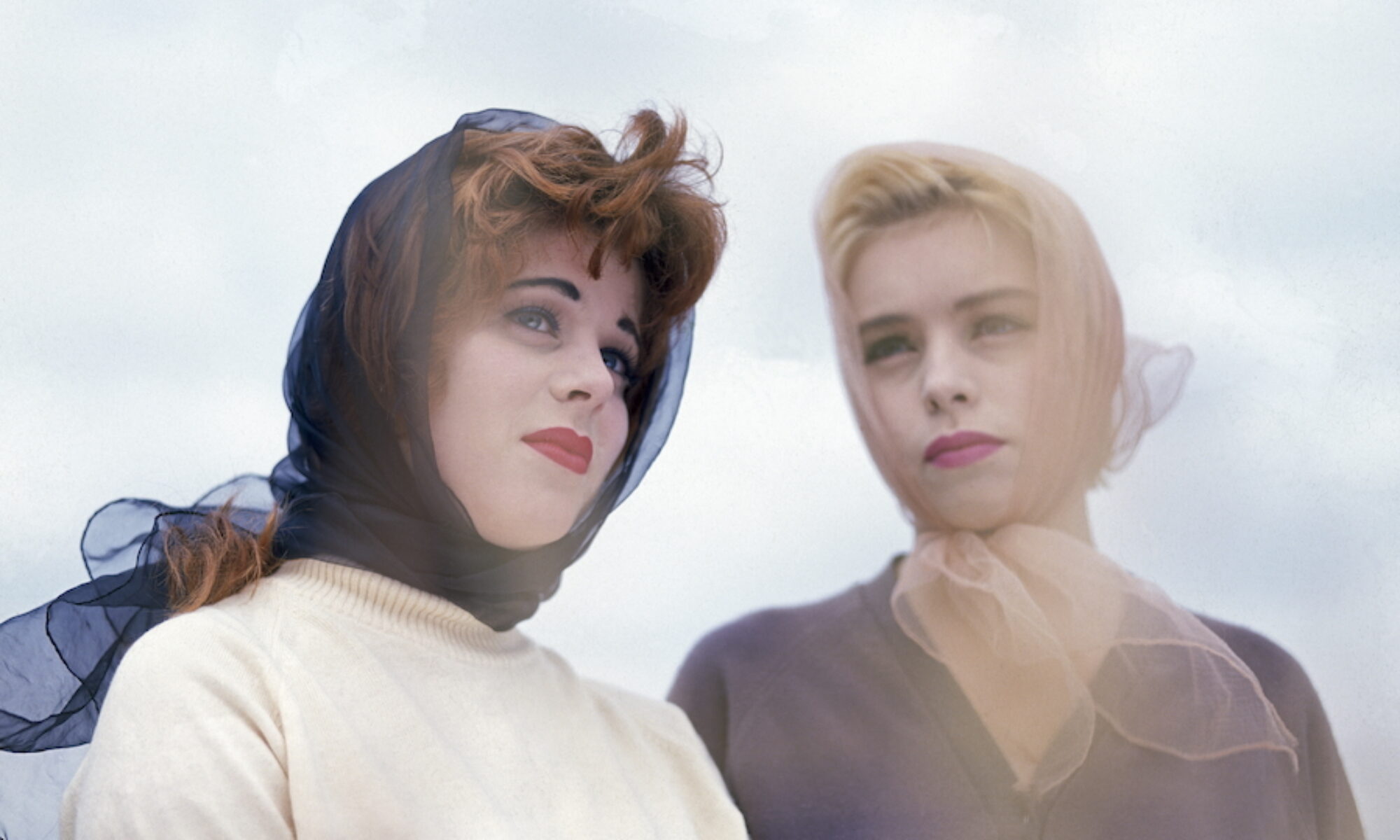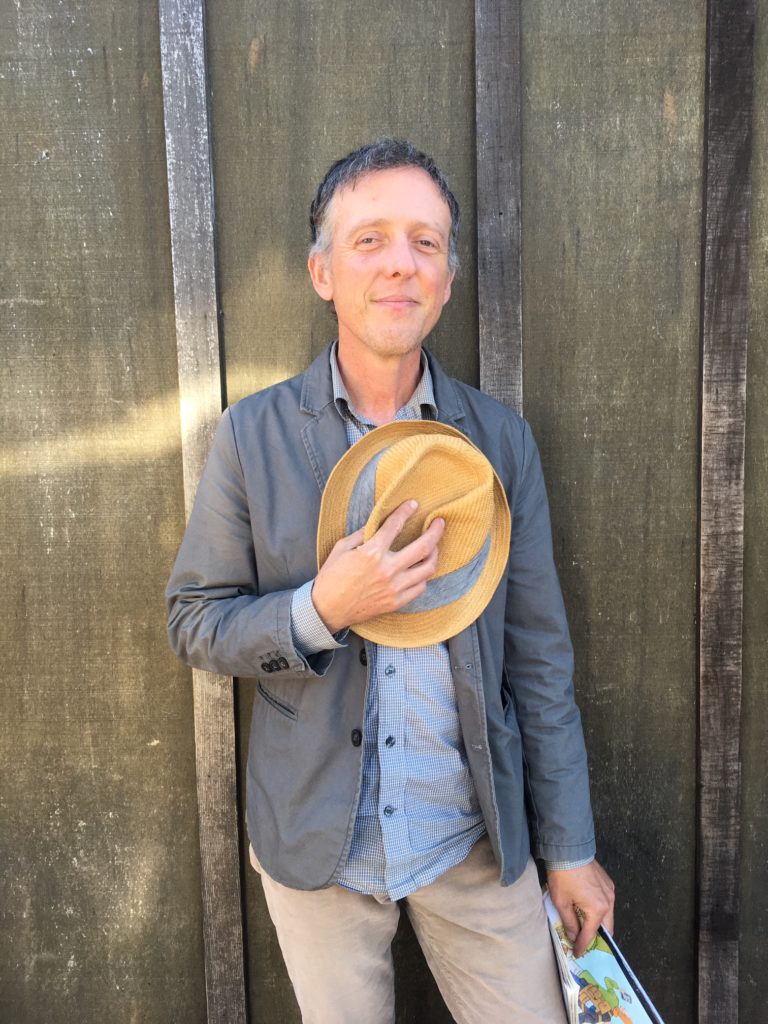
it’s been 23 years since rocketship released its wonderful debut LP, a certain smile, a certain sadness, and on october 11 the band is releasing a new album, thanks to you. songwriter and band leader dusty reske heard a felt song back in those days and rocketship was born. these days he lives in portland, oregon, and collaborates with ellen osborn and adam bayer. dusty thinks a certain smile still resonates with people in their twenties, but that people get more complicated as they get older.
“thanks to you is for all the fucked-up children of this world,” he says. “I’m drawn toward melancholy pop and tend to stress that innate juxtaposition in all of my own compositions and recordings. in my lyrics now I use a broader lexicon, yet the subjects reflect much of the same longing for love and connection through dysfunction and alienation as always.” head to rocketshipmusic.com, patreon.com/rocketship, darla and bandcamp to get the new record and find out more. we chatted with him over the summer at a portland bar about music, family, gentrification and climate change, among other things. interview by gail o’hara
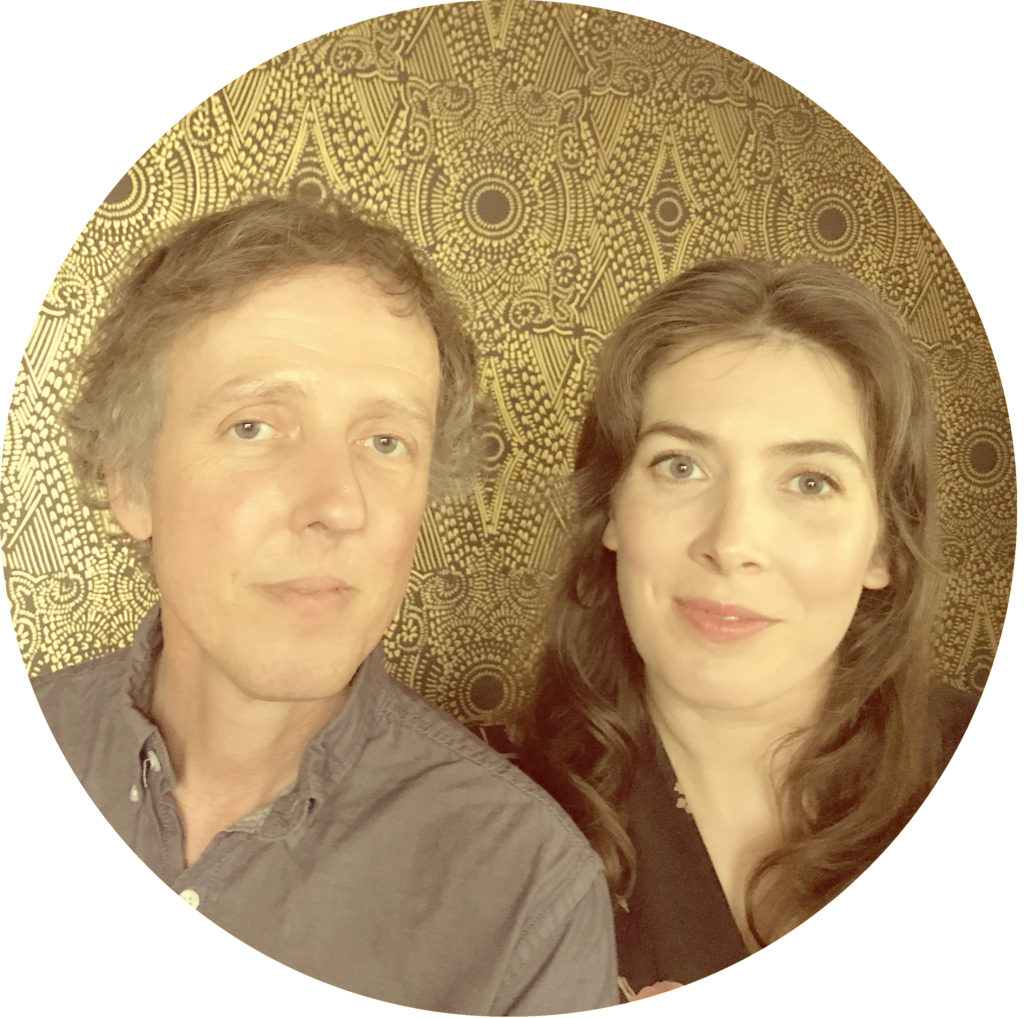
chickfactor: how long have you lived in portland?
dusty: I think 13 or 14 years.
where are you from?
dusty: I was born in san francisco, and I lived in the wine country in sonoma county for years until the end of elementary school, then I moved to texas for a decade until my senior year. I lived in dallas and then houston and then austin a little while for college, and then I moved to sacramento when I was 17.
did your parents move there for work?
dusty: my mother’s new husband was from texas. strangely they thought there wasn’t enough opportunity in sonoma so they went to texas and texas was about to boom.
why/how did you end up in portland?
dusty: my partner at the time was going to move from brooklyn, where she had been living for 15 years or something. she was going to move back to the west coast—she was from the bay area as well. I was living in arcata.
was that cynthia nelson?
dusty: yes. after sacramento I moved to arcata in my late 20s. (we talk about kendra smith, who doesn’t live in arcata, but in the region. I interviewed her for cf18.)
you and cynthia have two kids?
dusty: yes, aurelia is 12 and leo is 8.
are they musical?
dusty: I wouldn’t say so. they’re both really into literature, reading a lot. leo is now getting into sports a bit. aurelia is into drawing. kendra actually has a song called “aurelia.”
is that why you chose the name?
dusty: it wasn’t, I came across the song later.
are they quiet readers?
dusty: they’re not quiet readers. they occasionally throw the books across the room. they’re not too into music yet, not rock music. aurelia has been in the portland girl choir for a while. leo will sometimes hit the drums.
what do they think of your music?
dusty: I don’t know if they hear it that much. I never throw on an old record but they hear cynthia and I composing our music around the house a lot, but that’s always in bits and pieces when we’re trying to figure something out. cynthia and I will play a lot of covers, again trying to figure out new material. but it’s just something that’s always in the background in the kitchen, not something they have to deal too much with. It’s just something they know their parents do.
what do you think about portland now?
dusty: yeah. I’m an absolute proponent of infill ecologically but it’s hard to deal with the neighborhoods changing so much. I can see why they tear down old shacks and put up duplexes.
isn’t infill just high density? why are people against it?
dusty: I’m not exactly sure. people do like their single-family homes and maybe only want to live on a block that has single-family homes, what they’re used to. apartment complexes are often stigmatized because they’re where poor people live or people with modest means. there’s often a lot of NIMBY-ism around that. I suspect that their disgruntled-ness is misplaced and it’s actually the new people that are more the problem. the houses are all okay, but it’s this new wave of middle-class consumers who are displacing all the artists.
it does seem like californians are often blamed/demonized here but people are moving here from everywhere, right? gentrification is a tricky subject with a lot of different levels: one business opened on mississippi ave. and others followed and now the neighborhood is unrecognizable to many locals. can you blame the original business that was just looking for a place they could afford? change is inevitable but how does the city keep the original community from disappearing?
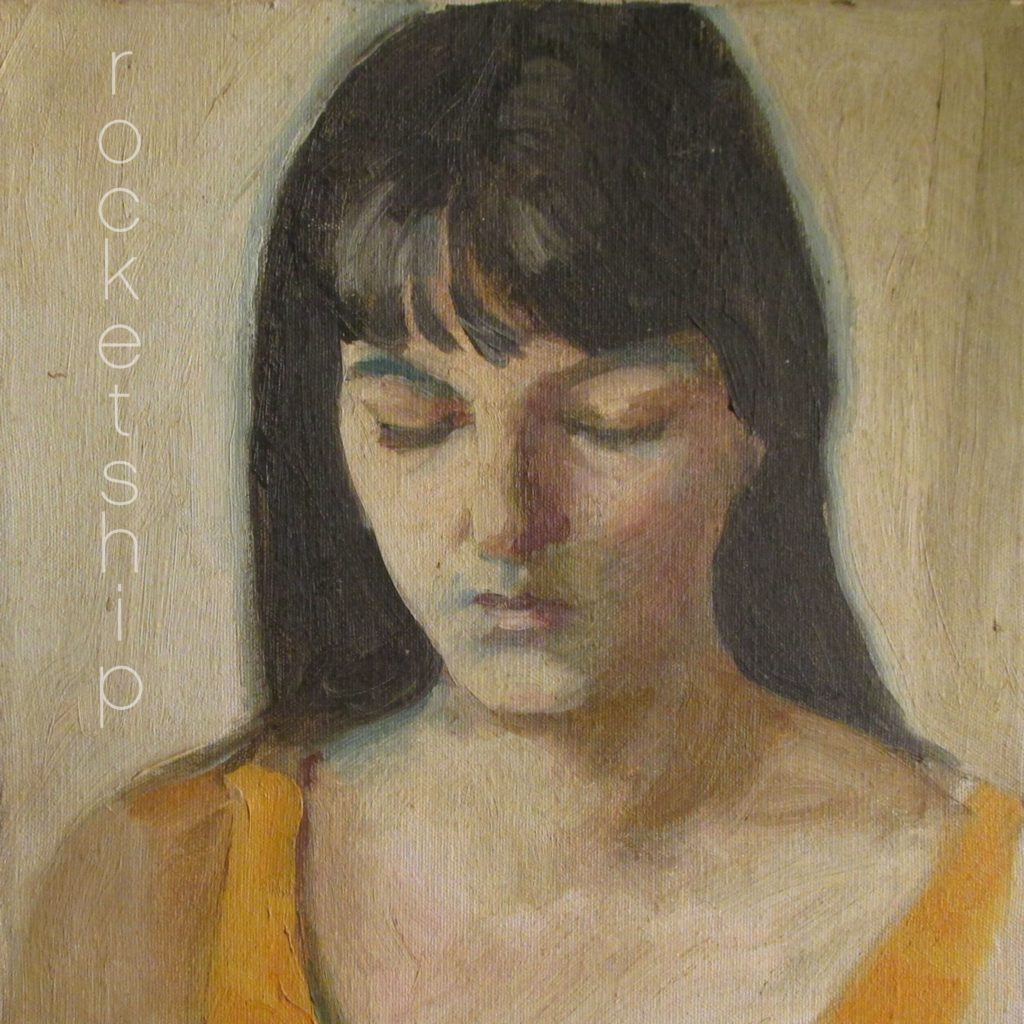
dusty: I agree. it used to feel more grassroots: somebody who was kind of scrappy put together the money and got some couches and started a coffee shop. that’s a little romantic. it seemed more down-home. and now it just feels like massive capital infusions from above that come in and change a street like division so that it’s just a new city there. it used to be open fields and they built a new city.
cf: that block on fremont between vancouver and williams used to be a field and now it’s that spaceship-looking office for instrument across from a new seasons. people who work there probably bought up a lot of the homes around there.
dusty: they could afford it. when we bought our house, it seemed like it was the least expensive house in NE and we fixed it up a little bit over time but our mortgage is still really low from so long ago. now we have people who come in with really serious middle-class jobs working 40 hours and they can’t afford to buy a house in our neighborhood and so they’re renting.
enough about gentrification! has rocketship been going this whole time?
dusty: I’ve always been doing music but I’ve taken long periods off. when I moved to arcata, I got really into social activism so I was going to meetings all the time: food not bombs, the free bike program, all kinds of things that people were doing, zines. I didn’t have time for music.
do you still do that stuff now?
dusty: the activism? I’m embarrassed to say no. I’m not social enough, I’m a little too shy and awkward. I’d like to be involved more. I keep up with politics but now it’s just donations.
portland is great because everyone shows up for everyone else’s rallies, but there’s also a fair bit of bickering and infighting within the left that takes everything off course.
dusty: activism used to be a thing I could just hop on my bike and go do but now it involves other people’s schedules. when I first moved to town, I worked at the alberta co-op for almost a decade. we had a big action there where we turned it into a worker-run collective. we got rid of the management structure. but it was hard too: there was a lot of fallout and infighting among the folks who had been allies.
what do you do to stay sane?
dusty: ooh, I don’t know. I don’t know if I’ve figured that thing out. I don’t know if it keeps me sane but I have a lot of time to think while I’m working. I have a company that does ecological lawn care. I do lawn care and yard care by bike using all hand tools, just in NE portland. I’m fitter than I’ve ever been in my life and I’m outdoors all the time. I wanted to do something where I wasn’t on the computer all the time. it’s called eco-lawn care.
did you do this before or just decide to start a company?
dusty: pretty much the latter. I had a garden in the back, I had grown vegetables, and I’d been a bicyclist for many years, which is really important cause I’m hauling a lot of tools around. I’ve been riding my bike as my main transportation for 20 years. I was thinking about going back to school and I only have so many years left when I can even work so should I take on that much debt?
it’s not rocket science, right? you just avoid using carcinogenic pesticides. there are so many stupid things humans have brought into our lives that we don’t really need: weed-wackers, gasoline mowers or those teeth flossers on a plastic stick. people love them, they’re so easy to use but if everyone uses those, we’re doomed.
dusty: it’s funny you mentioned those. ellen has an instagram account [where she posts photos of those on the ground] and people respond to it: for whatever reason, people leave those things all over the city. but yeah, people don’t like the noise from leaf blowers and gas mowers. I was reading a statistic that the amount of gas that is spilled every year by people putting gas into their mowers is equal to an exxon valdez spill. that’s not even the pollution that comes out of the thing, and that’s just the US.
what do you tell your kids about climate change?
dusty: it comes up all the time. climate change is just one part of a complete ecological apocalypse that we’re approaching, not to overstate it: deforestation, loss of top soil, extinction, the list goes on and on. these subjects come up a lot when we’re explaining why we won’t buy a certain thing.
portland used to be a green city, a green leader, but it doesn’t feel as much like that now. but at the same time there are people doing something on a small level and making a difference.
dusty: we do have a lot of advantages here. the scale is of such a scope that I don’t think there is any hope. it’s just going to be really awful; the next century is going to be awful for young people.
[heavy sigh] let’s get back to pop. what was your first concert?
dusty: my mom took me to a bunch of stuff in the 1970s, I don’t know what it was. the first one I went to that I’m conscious of was ELO. I thought I was going to see the alan parsons project but I hadn’t realized how much I liked ELO, especially Xanadu. I think van halen was the second one. by myself it might have been the cure at an amusement park like six flags or something.
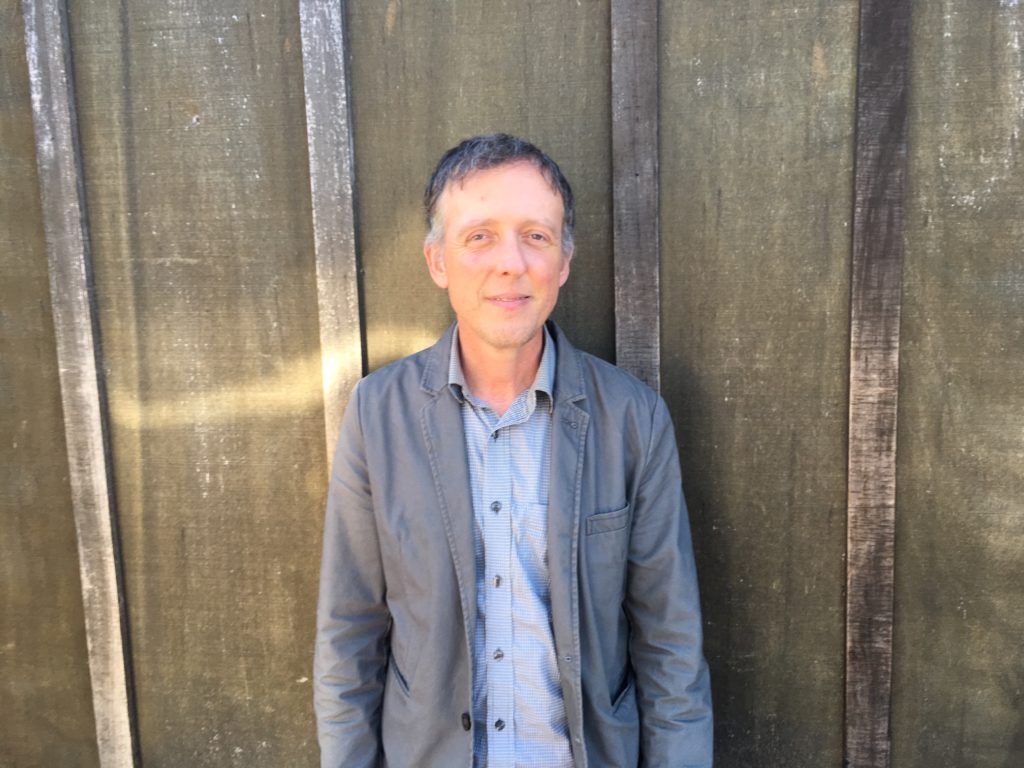
were you musical as a child?
dusty: not really. my parents bought me a drum kit and a guitar when I was 13 or 14, thinking I was a little too shiftless. so I kind of fumbled my way around those for a long time. finally when I was 18 or 19, when I was in someone’s dorm and they were playing a song, I thought, I know all those chords. I can play a song.
what was your first song about?
dusty: when I lived in texas, in my junior year a bunch of fellows said let’s start a band. they had two-track cassettes. so we would just record some music and dub that onto the next track and add some tracks. that really meant a lot to me because I could suddenly see how you could make a recording. It had never occurred to me to do that. we made a cassette—I mean, it’s pretty funky, not-good music but it kind of caught on with people’s friends so people were playing it on the weekends. we kind of just wrote those songs together and a lot of it was first takes. when I moved to sacramento, I fell in with a fellow named josh berkley, who befriended me. we were in show choir together with purple sequins. he invited me out to his house and he had a four-track. we kept it in this comical vein, we couldn’t take it too seriously, laughable songs about people at school. that was our first exposure to songwriting. we did a cover version of “leave me alone” the very last song on power corruption and lies. for college I wanted to go back and visit with all my friends in texas. I moved back to austin for a bit. I came back for xmas in sacramento and josh had started a band, a synth-pop band with his buddy aaron. that was real compositions, serious attempts at making music and I was instantly sucked in. when I went back to texas, that’s all I could think about. I was listening to it on my walkman, on the bus, thinking, why am I going to this class so early in the morning? so my second semester I dropped out and moved back to california.
you were like, I need to join this band!
dusty: yes.
when rocketship started, what were you listening to and what were you thinking you wanted it to be like?
dusty: josh and I had been in a band for a while and we kinda had made our name around sacramento; we were called the rosebuds. we probably wrote 20 songs or something. we were listening to english shoegaze music and we were playing that a lot. after that fell apart, I wanted to shift gears. it was before slowcore really happened, but a lot of people were thinking the same thing. I wanted to do this really slow kind of music and bought this really old organ and brought it up to the second floor of this duplex and did a 4-track demo. I guess I wanted to sound like galaxie 500 or something. shoegaze music had become passé, so I sold all my pedals, got that money back and stripped everything back. I was also taking a recording class at sacramento city college. for some reason at the time they had a state grant that funded their studio—they had like a million dollars and they built a world-class studio. I came up with this band name—not original—“silver rocket”, based on the sonic youth song. I liked the contrast, I was doing this mellow organ music. this guy ed artegas, who was there with me suggested, why not call it rocketship? I knew this guy who’d been a fan of the rosebuds, robert cartwright, he played drums. so we started playing together and his girlfriend heidi (barney) had played piano in her youth. for me rocketship begins properly because they played me this felt album, let the snakes crinkle their heads to death. the very first track on that (“song for william s. harvey”), it was mind-blowing, this super-organ-driven pop song. by that time stereolab had come out so I think we were reassessing guitar rock, but for a long time before that you couldn’t have keyboards in your band. so I wrote “hey hey girl” when I was inspired by this upbeat pop sound that I heard on that felt record.
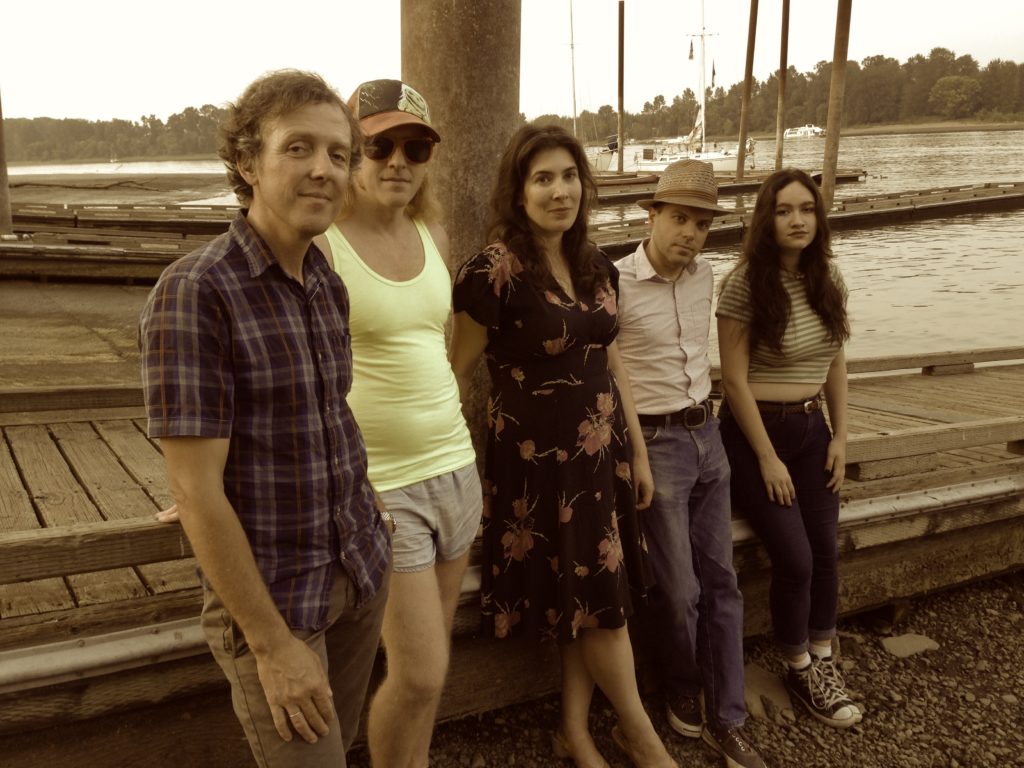
did you know rose melberg (who is from sacramento) and mike slumberland (who put out rocketship) in those days?
dusty: no. so heidi worked at a coffee roasting house of all places that rose worked at. so she gave rose our tape and rose kinda liked it so we met her through heidi. tiger trap was really important in sacramento.
when did ellen (osborn) join rocketship? she’s the other primary band member?
dusty: yes, and I would include adam bayer. ellen and I are best friends too. I wanted to put together a live band for your show [chickfactor 25 party at bunk bar, portland, december 2017], and I met ellen through adam. she was just the kind of singer that I had always wanted to work with.
and she was in an all-girl bee-gees cover band!
dusty: right, the she-bee-gees.
are there any platforms you like to use for making or listening to music?
dusty: I still download stuff for free and put it on my music player at home. for recording I use a program called ableton live. I have a bunch of shared software.
do you have any pets?
dusty: a cat named crystal.
do you have any idols? anyone you admire for their style or stagewear?
dusty: I’m thinking early morrissey with the open shirt and gladioli. [we discuss the fall of moz]
are you playing much these days?
dusty: it takes a lot of effort—or it has in the past—to put together the kind of band that I want or that can play the material. It requires a certain amount of musicianship, certainly on the organ. heidi used to do these incredible things, doing arpeggios on electric piano while she’s playing chords and then taping down a moog note. it’s hard to find people who can do that. it requires rehearsal and we’re not at a level where we can count on getting paid so it really has to be for the love of it and people’s lives are so busy.
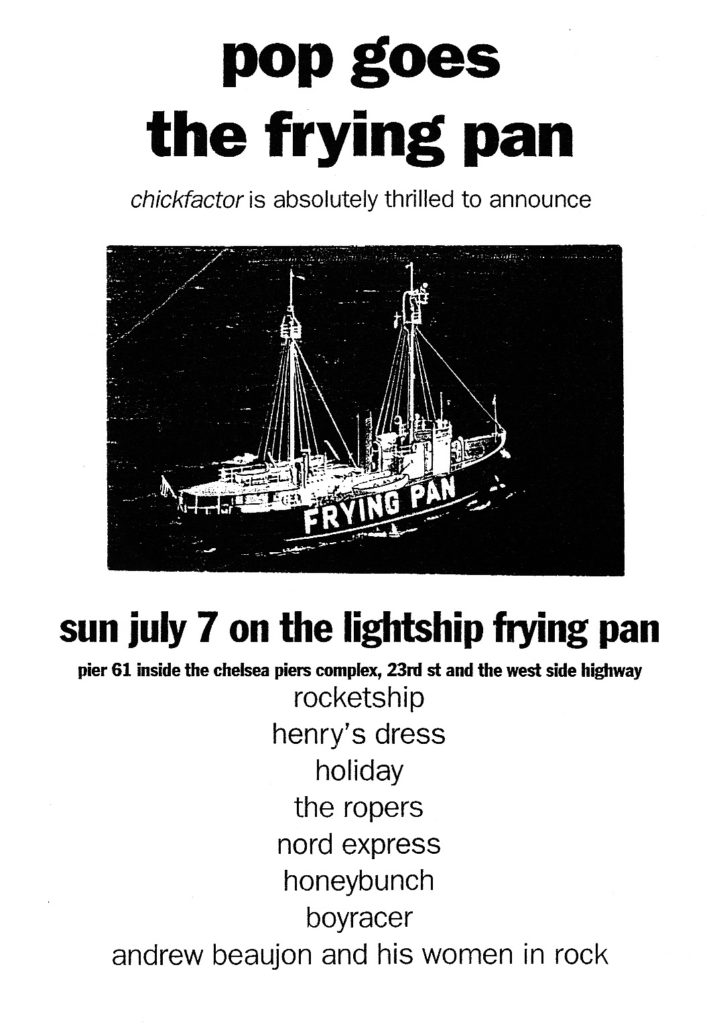
is that why you gravitate to more stripped-down live shows?
dusty: I’m flirting with that more and more: a lot less gear that’s easier to play for people that can also replicate a lot of the more modern sounds. I’m not in love with a loud drum kit where everything then has to get loud. it’s environmental noise pollution and it damages people’s bodies.
it’s hard to know how big your audience out there in the world is because people haven’t seen you play much in a long time.
dusty: we did popfest a few years ago in new york, san francisco and sacramento. I don’t like playing live that much partially because—at least in the kind of music that I play—it’s so repetitive. it’s not necessarily very creative. for me all the pleasure is in writing and recording the songs. by the time I’m done recording it, I’ve heard it thousands of times, and adjusted it and the minutiae and all the different ways that are meaningful to me, it’s hard for me to just hear it back in a way. I get particular about trying to re-create the recordings and how all the details are supposed to go live. So that presents its own challenge. it’s hard for me to just get together with a bunch of people and bash it out.
what’s coming up for you and rocketship?
dusty: our new record! I’m making 10 videos for it and that’s all planned out. before I met you today, I was working on the next record. so in the next 10 years, I’m going to be putting out lots and lots of material. that’s the plan.
thank you, dusty!
